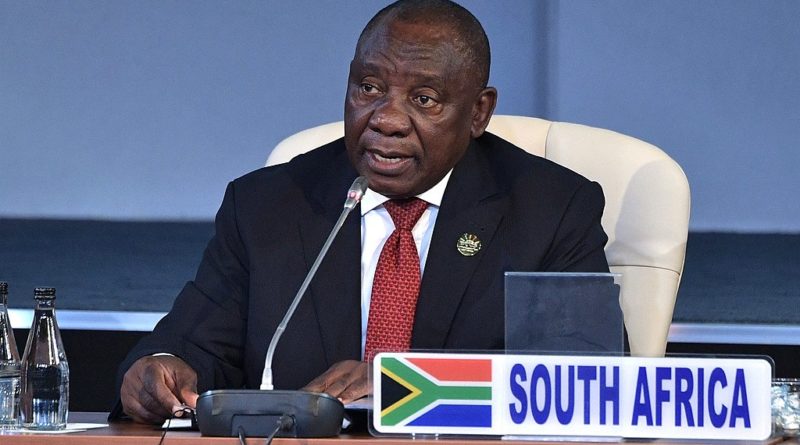South Africans plan mass global demonstration
The immense socio-economic impact under one of the world’s most extreme lockdown’s during the Covid-19 pandemic has resulted in South Africans uniting for their voices to be heard under a grassroots movement called Move One Million.
The movement, launched in July 2020, has garnered interest from half a million South Africans to date and organisers are using a combination of online and on foot methods to engage, educate and empower South Africans across all communities.
Their aim is to encourage at least 1 million South Africans, locally and internationally, to stand united at protests, in vehicle convoy’s and on street corners on Saturday 5th September 2020. They wish to express to the South African government and the world that ordinary citizens are no longer prepared to accept the longstanding status quo of various issues including crime, poverty, corruption, lack of job creation, lack of access to basic housing, healthcare, education and food security.
The movement, founded by Jarette Petzer and Joanita Van Wyk, is also working on a mass campaign for direct elections. In June 2020, the South African Constitutional High Court ruled that the current Electoral Act is unconstitutional as it does not allow for individuals to stand as independent candidates in local and national elections. This campaign seeks to empower SA citizens to stand united in ensuring all relevant changes are made to the Electoral Act within the 24-month time frame issued by the court.
The Move One Million team believe that this will set precedence for future generations by providing a legal process that will give more power to the people of South Africa to ‘hire and fire’ those who represent them in government.
This is in contrast to the current legislature which provides for indirect elections whereby citizens vote for a party and each party’s select committee chooses who they wish to put forward as MP’s or MPL’s to represent their party at national or provincial government respectively.
The draconian laws implemented under the National Disaster Act between March to August 2020 have resulted in an estimated further 2 million citizens facing starvation, bringing that number up to 15 million people. It has also further decimated the country’s economy after it was downgraded to full junk status at the start of lockdown.
According to recent quarterly reports issued by Stats SA, the first quarter of 2020 resulted in the following job losses: 17,000 in the trade industry, 14,000 in the construction industry, 2,000 in the manufacturing industry, among others, and a total decrease of R46.7 billion gross earnings paid. Land transport of goods declined by 20% for June 2020 compared to June 2019. The mining sector is down by 28.2% year on year for June 2020.
Reports also reflect a decrease of over 90% of both South African and foreign national arrivals and departures and accommodation bookings in the country when comparing June 2019 to June 2020. The ongoing airspace closure along with the short-term closure of hospitality, travel and tourism and ban on inter-provincial travel has decimated the tourism industry which provides 1 in 8 jobs in the country.
The ban of cigarettes and alcohol, although partially lifted in August 2020, has resulted in an unnecessary black market of these products and the potential closure of 1 in 5 wine farms in the country. Total income for the food and beverage industry declined year on year by 50.3% in June 2020 alone.
Petzer states, ‘We will continue to mobilize more of the country through a number of national ground campaigns over the next 20 months ahead of the next elections, bringing more of our country onto its feet in a united effort to challenge the system. We also demand that the public both locally and internationally enjoys total transparency into the revision of our direct electoral process. We demand that those in government be accountable to the true custodians of this land, the people of South Africa.’
It has been 26 years since South Africa achieved democracy however millions of citizens have lost hope as South Africa continues to be labelled as one of the most unequal countries globally. Mounting issues such as SA being dubbed both the rape and murder capital of the world, human rights violations such as the Life Esidimeni tragedy, unemployment rate expected to exceed 40% by December 2020 and abject poverty across the country continue to haunt the South African narrative and severely impact foreign investment.
South Africa’s government debt is in excess of two trillion Rand, which works out to approximately R67,106.00 for every citizen. The GDP is expected to reach 81.80% by the end of 2020, according to Trading Economics.
Fitch Ratings stated in June 2020 that it is unlikely the SA government will achieve its target to stabilize debt levels within four years, as set out in the June emergency budget. The level of poverty continues to increase and as of April 2020, the government set the current national food poverty line at a mere R585 per person per month.
Numerous reports of ongoing corruption scandals before and during Covid-19 highlight serious issues of leadership and management at national, provincial and local municipal level across the country.
South Africans living abroad have arranged various protests and gatherings to stand in solidarity with the movement in more than 16 countries including Portugal, Mexico, Cyprus, Greece, Germany, Italy, Belgium, the Netherlands, Norway, Switzerland, the UAE, the United States, Canada, New Zealand, Australia, Uganda, Madagascar and the U.K. This is set to be the largest movement of its kind in South Africa since Apartheid.
References
Court ruling: https://theconversation.com/constitutional-court-ruling-heralds-changes-to-south-africas-electoral-system-140668
Stats SA http://www.statssa.gov.za/?page_id=1859




